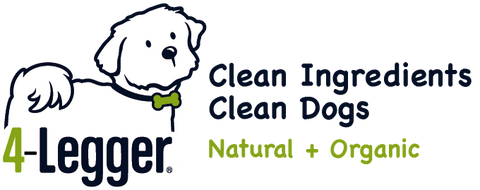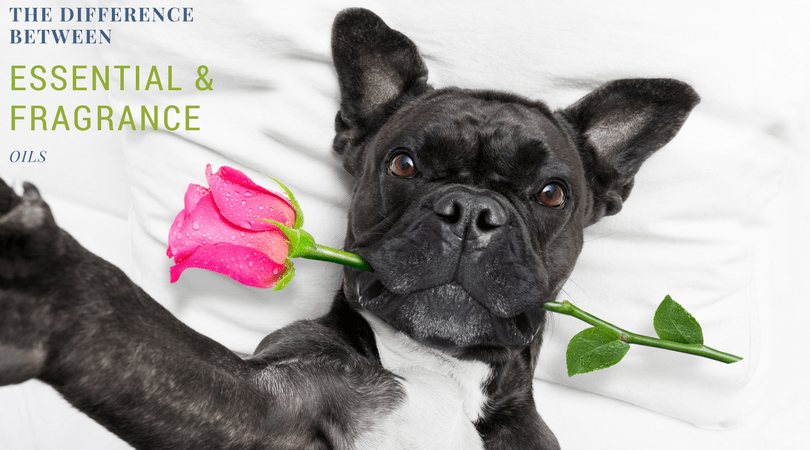Learn the difference between fragrance oil and essential oil
A customer recently wanted us to recommend an "apple essential oil" they could add to 4-Legger's Unscented Certified Organic Dog Shampoo.
She said had used "another natural dog shampoo with apple essential oil" and really liked the scent.
We asked her if the ingredient in the other product was apple extract, tincture, or apple infused oil.
She fetched the bottle to discover it said "apple fragrance oil".
Ah, ok. That makes sense.
It isn't an essential oil. It is a synthetic fragrance.
There is no such thing as apple essential oil.
So, what is the difference between essential oil and fragrance oil?
What Are Essential Oils?
Essential oils are pure distillations of flowers, bark, leaves, roots, peels or resins that have not had a carrier oil (coconut, olive, etc.) added. While there are different extraction methods, 4-Legger selects essential oils that have been naturally extracted by steam or cold press.
As you can imagine, if you are working to extract the pure compounds out of a flower it takes a LOT of flowers to get a small quantity of essential oils.

The quality of essential oils can vary by crop, region where they are grown, the amount of rainfall, temperature, sunlight, extraction method, handling, and other conditions.
High quality essential oils are expensive and prized for their scent as well as their beneficial and therapeutic properties (which can also vary by crop).
What Are Fragrance Oils?
Fragrance oils are synthetic imposters. They are developed in the laboratory with the goal of smelling like an essential oil. Since they are synthetic they are more consistent in scent from batch to batch but do not contain the therapeutic benefits of essential oils.
Many companies claim fragrance oils can elicit an emotional response from the smell of the synthetic fragrance oils - called aromachology (psychology of aromas) - not to be confused with aromatherapy (therapeutic benefit).
While that may be true, many of these fragrance oils are made from petrochemicals and like air fresheners have been linked to health issues.
A September 2007 study by the Natural Resources Defense Council identified air freshers as a health threat from chemicals called phthalates with links to hormonal abnormalities (which may lead to cancer), birth defects, and reproductive problems. In 2014, Scientific American reported phthalates having a link to a child's future risk of asthma.
While it is possible to find fragrance oils that are not made with phthalates, there are no regulations to disclose ingredients and there are no studies that research safety on the use of fragrance oils for you or your dog.
Your Fur and Feather Family's Body Is More Sensitive
While you probably know your dog's nose is 40x more sensitive than your nose; you may not realize how sensitive your dog's body is to artificial fragrance and low grade essential oils.
Did you know diffusing a synthetic fragrance or low grade essential oil can actually change your dog's blood chemistry?
Dr. Melissa Shelton, DVM, holistic veterinarian and owner of animalEO found this to be the case: "We had started to document clear problems in animals coming from homes using plug-in air fresheners, spray air fresheners, odor eliminating sprays, perfumes, fabric softeners, and toxic cleaners. Seizures, kidney value elevations, liver value elevations, feather picking, skin problems, and even ear infections resolved as the use of these products was eliminated."
With dogs sensitive enough to identify seizures in humans, it is no surprise their bodies are sensitive enough to identify what is truly natural and what is synthetic.
Think about that next time you are out shopping!





